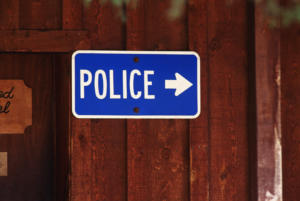If you are the defendant in a criminal prosecution, one type of evidence the State may try and use against you to obtain a conviction is DNA evidence. Understanding what DNA is and how law enforcement agencies use it as evidence can be a complex task. To help simplify it, a Murfreesboro criminal lawyer at Bennett, Michael & Hornsby 
What Is DNA?
“DNA” is an acronym for “deoxyribonucleic acid,” a self-replicating material present in nearly all living organisms as the main constituent of chromosomes. It is the carrier of genetic information for living organisms, including for human beings. DNA can be found in, and potentially attracted from, blood, semen, saliva, urine, and feces as well as hair, teeth, bone, tissue, and cells. Although 99.9 percent of human DNA sequences are the same in every person, enough of the DNA is different that it is possible to distinguish one individual from another, unless the two samples are monozygotic (“identical”) twins. Because DNA has the capacity to scientifically identify someone, it has become a critical evidentially tool for law enforcement agencies in recent decades.
Collecting DNA Evidence
The science of DNA – and specifically the collection and comparison of DNA – has made significant advancements in recent years. Today, DNA at a crime scene might be extracted from common items such as clothing, weapons, glasses or bottles, hairbrushes. If a person touched an object or weapon, skin cells may have been left behind. This low-level DNA is sometimes referred to as “touch DNA”. It can even be collected from a victim’s skin or bruises where they were handled roughly. Low-level DNA samples may be helpful when examining evidence where it would be difficult to retrieve fingerprints—such as textured surfaces on gun handles or automobile dashboards. Of course, DNA can also be extracted from more traditional sources, such as blood and semen found at the scene of a crime.
Using DNA Evidence
For DNA collected at a crime scene to be used against a defendant, that sample must first be compared (and ultimately matched) against a suspect’s DNA. To compare the suspect’s DNA profile to the recovered crime-scene DNA, the laboratory will need to have the suspect’s known biological sample available for a side-by-side comparison. These known samples are called reference samples. In some jurisdictions, a DNA sample is routinely taken from an arrestee during the process of booking and fingerprinting. The United States maintains the largest DNA database known as the Combined DNA Index System (CODIS). When DNA evidence is uncovered as part of a criminal investigation it will be run through CODIS to check for a match.
CODIS was designed to compare a target DNA record against the DNA records contained in the database. Once a match is identified by the CODIS software, the laboratories involved in the match exchange information to verify the match and establish coordination between their two agencies. The match of the forensic DNA record against the DNA record in the database may be used to establish probable cause to obtain an evidentiary DNA sample from the suspect. The law enforcement agency can use this documentation to obtain a court order authorizing the collection of a known biological reference sample from the offender. The casework laboratory can then perform a DNA analysis on the known biological sample so that this analysis can be presented as evidence in court.
Sometimes people close to the investigation will also be asked to voluntarily provide a DNA sample to exclude them as a suspect, or in the hope of finding the perpetrator. Because taking a DNA sample has long been considered a “search and seizure” by the courts, the police cannot force you to give a DNA sample unless the officer has first obtained a warrant signed by a judge.
Contact a Murfreesboro Criminal Lawyer
If you were recently arrested and charged with a criminal offense that may potentially involve the use of DNA evidence, consult with an experienced Murfreesboro criminal lawyer at Bennett, Michael & Hornsby as soon as possible to discuss your legal options. Contact the team today by calling 615-898-1560 to schedule your free appointment.
- Understanding the Role and Responsibilities of a Trustee - April 23, 2024
- When Are Miranda Warnings Required? - April 16, 2024
- 5 Benefits of Mediation in a Tennessee Divorce - April 9, 2024







